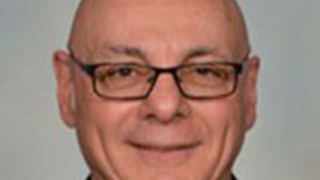Mgsr. James Cafone Third Annual Lecture
Thursday, March 30th, 2017

About the Lecture:
God created a world in which every living creature must eat. So,
food is obviously a big part of our lives. Today more than ever we have
a greater variety of foods, especially due to our global society with
"ethnic" or "cultural" foods no longer just confined to their native
country, but now present in global commerce. Food comes in many forms
and types and origins – plant foods, animal foods, fresh/natural foods,
and processed foods, the latter of which is an enormous industry and
growing larger every day.
Food nourishes us physically, mentally, and spiritually. We need to
consume a variety of foods so that our body receives all of the
essential nutrients it needs. We all need to make wise eating choices,
to choose nutritionally-rich foods as opposed to those that are
nutritionally-poor. The bible says a lot about food. Jesus spoke often
about food, both in a physical and theological sense. The Holy Mass is
a sacred meal. Jesus said "I am the bread of life; whoever comes to me
will never hunger, and whoever believes in me will never thirst" (John
6:35).
In relating the science of food to faith and theology we face
ethical implications of food, in which we need to consider risk-benefit
issues. One such issue is the safety and efficacy of genetically
modified foods. Take an apple, for example, a food often referred to in
scripture. In 2015 the U.S. Department of Agriculture approved the
first genetically modified apple for sale in the U.S. The modified
apple resists browning when cut open or sliced, a trait that makes it
useful for restaurants, grocery stores, airlines and other companies
that offer pre-sliced fruit. That's a great benefit, but are there
safety and health risks associated with genetically modified foods?
Does genetically modifying a food tinker with God's creation? What
about Issues of hunger and malnutrition and food aid? God calls us to
serve the poor and feed the hungry. There is enough food to feed the
world, but why do close to a billion people go to sleep hungry every
night. So many issues we face! This lecture will address such
relationships between food, faith, and science.
About the Speaker:
Fr. Buonopane's area of specialization is food chemistry (Ph.D.,
Penn State). Prior to seminary and his ordination to the priesthood in
2006, Fr. Gerry held a number of positions in academia, the federal
government (USFDA), and in the food and pharmaceutical industries. His
research areas of interest are: the oxidative and deteriorative changes
of foods and fats; essential oils as natural antioxidants; and cold
plasma treatment of botanicals and essential oils. At Seton Hall he has
developed a food chemistry course and a course titled "Science and
Theology of Food", the latter of which was developed through a grant
awarded by the John Templeton Foundation.
About the Department of Catholic Studies:
Established in 2012-- the Year of Faith and the 50th anniversary of
the opening of Vatican II -- the Department of Catholic Studies at Seton
Hall University, America's oldest diocesan university, fosters Seton
Hall's Catholic identity and mission by exploring the relationship of
Catholicism with all areas of culture and learning. Since its focus is
the Church's encounter and dialogue with society or the Church in the
world, Vatican II designated a special place for Catholic Studies as a
discipline in academic life. As a result, Catholic Studies is a dialogue
between Catholicism and culture that occurs in a special way at
Catholic universities. While respecting other disciplines, Catholic
Studies explores theology and philosophy in relation to culture,
humankind and the world. This methodological approach opens up a place
for all other disciplines; these enrich Catholic Studies and are
enriched in return.






